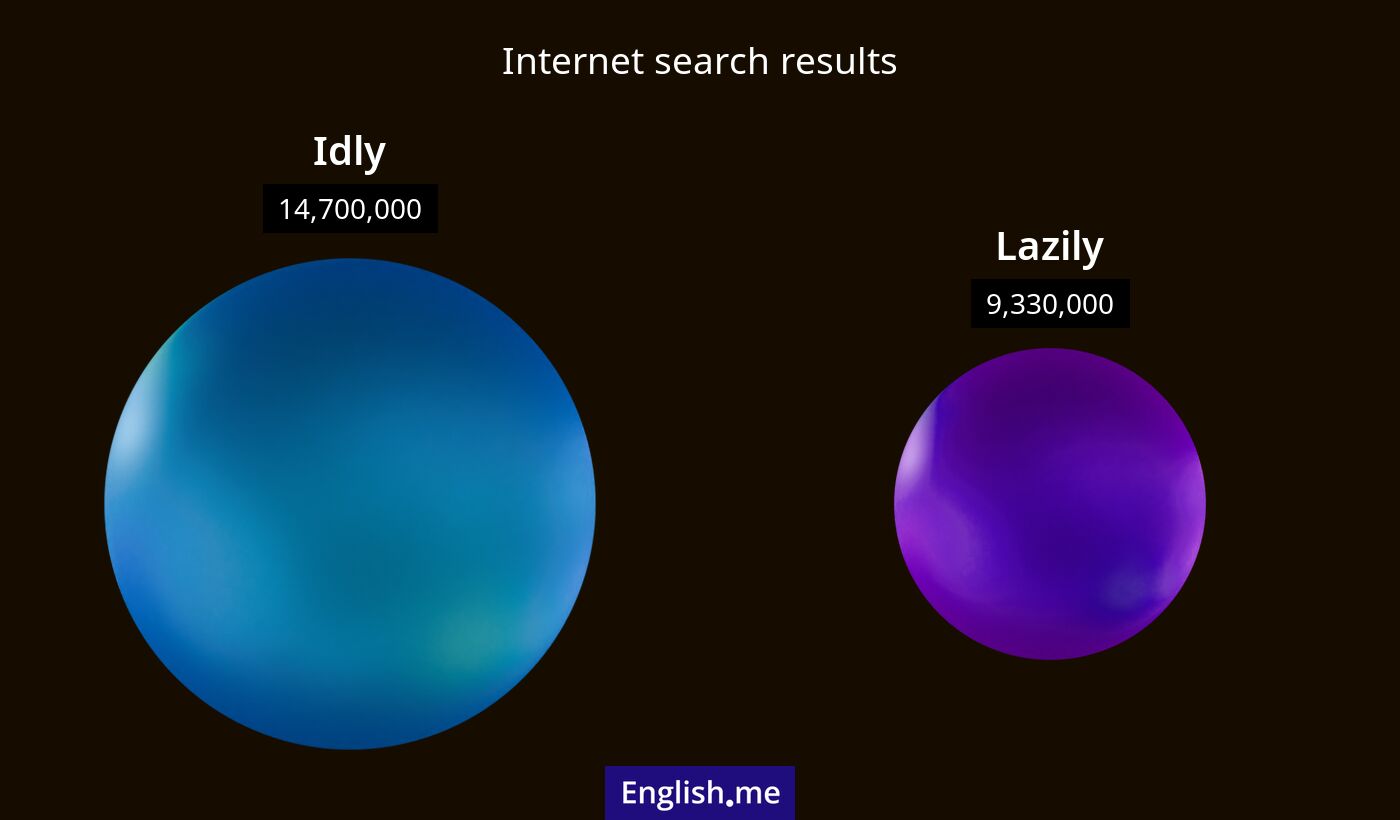Examining "idly" vs "lazily": nuances in action
Reviewed and edited by  Lloyd Cooper 31/10/2024, 18:48
Lloyd Cooper 31/10/2024, 18:48
English.me team member

 What is similar?
What is similar?
Both words describe actions done with little effort, enthusiasm, or purpose.
 What is different?
What is different?
Idly refers to doing something without a specific purpose or aim, often implying inactivity or inaction. Lazily implies doing something in a relaxed manner with minimal effort, often connected to avoiding work or exertion.
 Which one is more common?
Which one is more common?

 Examples of usage
Examples of usage
Idly- He stared idly out the window, watching the world go by.
- She idly flipped through the magazine, not really interested in any of the articles.
- The car idled at the red light, engine humming softly.
- The cat stretched lazily in the warm sunlight.
- He lazily dragged himself out of bed, not wanting to start the day.
- They lazily paddled their canoe down the calm river.

 English
English español
español française
française italiano
italiano deutsche
deutsche 日本語
日本語 polski
polski česky
česky svenska
svenska Türkçe
Türkçe Nederlands
Nederlands